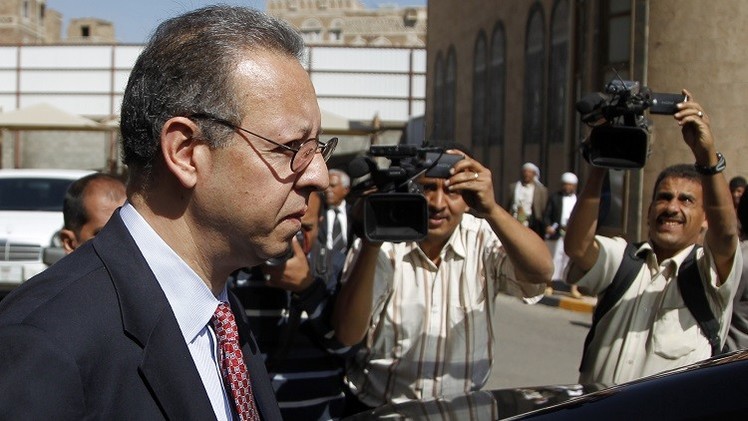Yemen’s warring political factions were on the verge of a power-sharing deal when Saudi-led airstrikes began a month ago, derailing the negotiations, the United Nations envoy who mediated the talks said.
 Yemen’s warring political factions were on the verge of a power-sharing deal when Saudi-led airstrikes began a month ago, derailing the negotiations, the United Nations envoy who mediated the talks said.
Yemen’s warring political factions were on the verge of a power-sharing deal when Saudi-led airstrikes began a month ago, derailing the negotiations, the United Nations envoy who mediated the talks said.
Jamal Benomar, who spearheaded the negotiations until he resigned last week, told The Wall Street Journal the Saudi bombing campaign against Yemen has hardened positions on a key point—the composition of an executive body to lead the country’s stalled transition. This will complicate new attempts to reach a solution, he said.
“When this campaign started, one thing that was significant but went unnoticed is that the Yemenis were close to a deal that would institute power-sharing with all sides, including the Houthis,” said Mr. Benomar, a Moroccan diplomat.
Mr. Benomar is scheduled to address the U.N. Security Council behind closed doors on Monday and report on the suspended political talks.
Most Yemeni political factions agree talks were progressing in the run-up to the Saudi air campaign, but their views vary on Mr. Benomar’s assertion that a deal was close.
This round of U.N.-brokered talks—which began in January and included 12 political and tribal factions—represented a crucial part of a mission to install a unified government in Yemen, the poorest Arab country and home to al Qaeda’s most dangerous offshoot.
The Houthis, who have overrun significant parts of the country in the past eight months, had agreed to remove their fighters from the cities they were occupying under the deal that had been taking shape. The U.N. had worked out details of a new government force to replace them, Mr. Benomar said.
In exchange, Western-backed President Abdrabbo Mansour Hadi, who has since fled the country, would have been part of an executive body that would run the country temporarily, Mr. Benomar said.
The Houthis had agreed to that reduced role for Mr. Hadi until the Saudi military intervention began on March 26. At that point, the Houthis hardened their position on this key point and opposed any role for Mr. Hadi in government, Mr. Benomar said.
Saudi-backed factions have also hardened their positions, saying the Houthis shouldn’t be granted political power.
Two other Arab states—Qatar and Morocco—were willing to host new rounds of Yemen peace talks. But after both countries joined the Saudi-led military coalition, the Houthis rejected those venues, according to Mr. Benomar.
A senior diplomat familiar with the negotiations said the Saudis also intervened to prevent a power-sharing deal that would include the Houthis and that would give 30 % of the cabinet and parliament to women.
Mr. Benomar said he would tell the Security Council on Monday that only U.N.-led talks in a neutral location can have any chance of success.
On Saturday, Ismail Ould Cheikh Ahmed of Mauritania was named as the new U.N. envoy for Yemen.